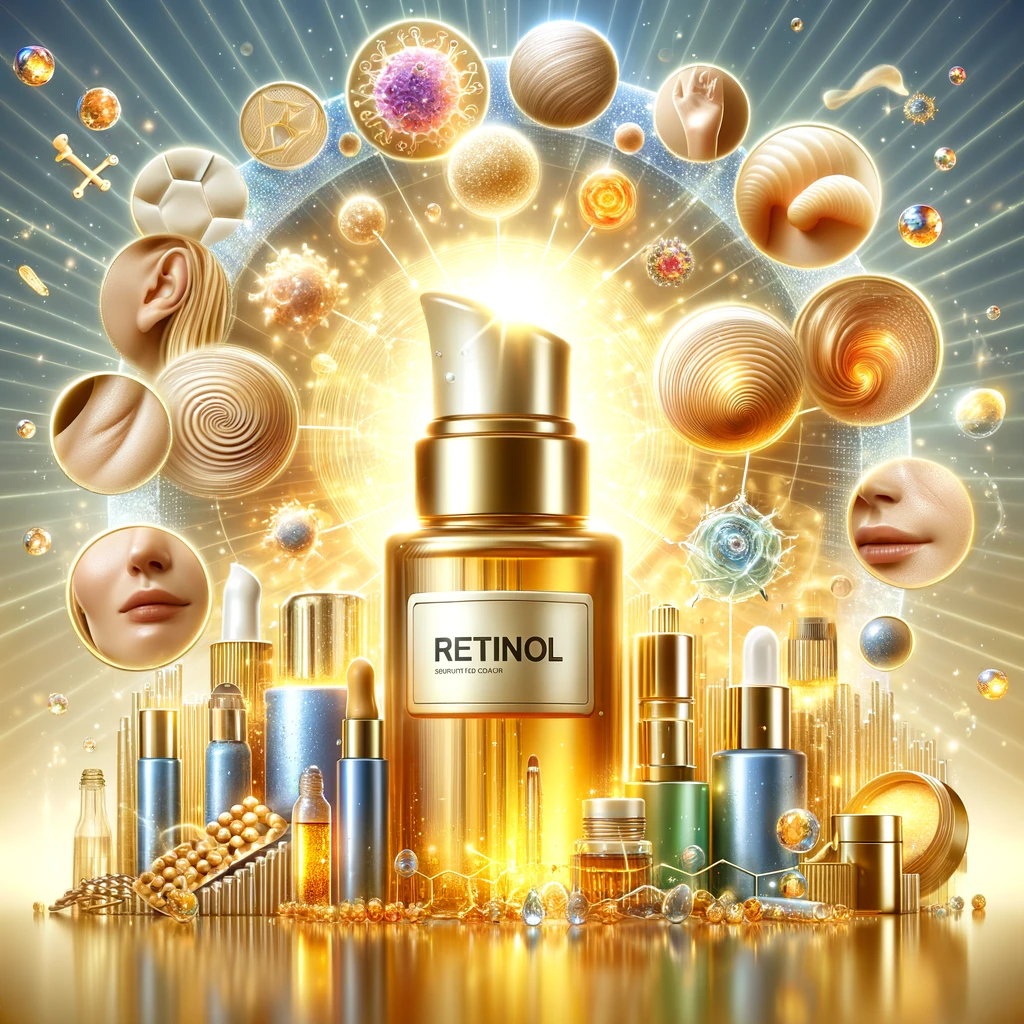Definition
Retinol, a vitamin A derivative, is frequently used in skin care products to enhance skin texture, reduce wrinkles, and even tone.
Expanded Explanation
Retinol has become a popular and effective ingredient in many skincare products because it can increase cell turnover and stimulate collagen production. This promotes overall skin health and helps maintain a youthful appearance.
It is essential to tailor retinol usage to individual skin types and needs using appropriate concentrations to ensure optimal results. Additionally, it is necessary to use it consistently and as directed to achieve the desired benefits.
Benefits of Retinol
Retinol provides multiple benefits for the skin, including:
- Reducing fine lines and wrinkles: Retinol is a substance that helps to increase collagen production in the skin. This improves skin elasticity and reduces wrinkles and fine lines.
- Evening out skin tone: Retinol can help fade age spots, hyperpigmentation, and other skin discolorations for a more uniform complexion.
- Improving skin texture: Retinol helps smooth rough skin and unclog pores by promoting cell turnover, resulting in a refined skin texture.
How to Use Retinol
To get the most out of retinol while minimizing side effects, it’s crucial to use this ingredient correctly:
- Start with a low concentration and gradually increase as tolerated.
- Apply at night, as retinol can make the skin more sensitive to sunlight.
- Always wear sunscreen during the day to protect the skin from sun damage.
Examples
Example 1: Using a retinol serum in your nighttime skincare routine to improve skin texture and reduce the appearance of fine lines.
Example 2: Incorporating a retinol eye cream to target crow’s feet and other signs of aging around the eyes.
Related Terms
Vitamin A, a group of fat-soluble compounds, is crucial for healthy skin, vision, immune system function, and overall growth and development. It is essential in various biological processes, including cell growth, vision, and immune function.
Additionally, it possesses antioxidant properties that safeguard cells from damage caused by free radicals. This vitamin exists in two forms: Retinol, found in animal-based foods like liver, eggs, and dairy, and carotenoids, present in plant-based foods such as carrots, spinach, and sweet potatoes.
Collagen: The human body is made up of a protein called collagen, which is the most abundant structural protein. It provides strength and elasticity to skin, bones, tendons, ligaments, and cartilage tissues. Connective tissues require an essential component that preserves skin elasticity, bone strength, and joint flexibility.
Overall, collagen is vital for the proper functioning of the human body. Therefore, collagen is essential for the overall health and well-being of the body. However, our natural collagen production diminishes as we age, leading to wrinkles, sagging skin, and weaker joints.
Visual and Product Aids
External Resources
Retinoids in the Treatment of Skin Aging: A Scientific Review discussing the benefits and use of retinoids, including retinol, for skin aging.
Retinol: When to Use It and How to Avoid Side Effects: Practical advice on how to use retinol from the American Academy of Dermatology Association.
Related Articles
The Ultimate Guide to Retinol: Benefits, Usage, and Side Effects: Retinol, celebrated for its anti-aging and acne-fighting abilities, is a powerful skincare ingredient derived from vitamin A. It enhances skin health by increasing cell turnover, boosting collagen production, and managing sebum production. This makes it highly effective in reducing wrinkles and fine lines, leading to smoother and younger-looking skin.
Additionally, it treats acne by regulating oil production, reducing inflammation, and clearing pores. However, it can initially cause irritation, dryness, and increased sun sensitivity. To minimize the side effects of skincare products, it is advisable to begin with a lower concentration, apply hydrating moisturizers, and always use sunscreen.
How to Incorporate Retinol Into Your Skincare Routine: Retinol recognized for its ability to diminish fine lines, wrinkles, and dark spots, is a critical ingredient in skincare derived from vitamin A. It enhances skin texture, tone, and overall appearance by accelerating cell turnover and promoting collagen production.
To effectively integrate retinol into a skincare routine, gradually increase the frequency and use it intermittently. For instance, use it every other day or a few times a week. It’s also important to manage potential side effects like dryness and increased sun sensitivity by moisturizing and using sunscreen. The consistent use of retinol, tailored to individual needs, can significantly improve skin health for people of all genders.


